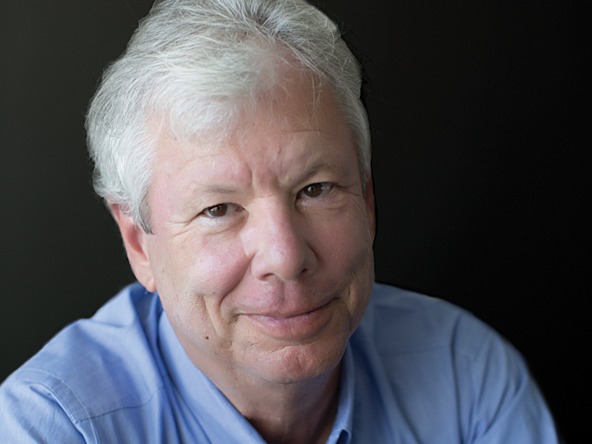FEATURE3 August 2017
Richard Thaler In Seven
x Sponsored content on Research Live and in Impact magazine is editorially independent.
Find out more about advertising and sponsorship.
FEATURE3 August 2017
x Sponsored content on Research Live and in Impact magazine is editorially independent.
Find out more about advertising and sponsorship.
Richard Thaler is an expert in behavioural economics and finance, and the psychology of decision-making. He is co-director of the Behavioral Economics Project at the National Bureau of Economic Research. In 2008, with Cass Sunstein, he Co-wrote Nudge, which laid out concepts of behavioural economics to tackle many of society’s major problems

No way! When we proposed the book there was little interest from publishers, so we ended up with a sleepy university press that had no expertise or interest in publicising the book. We just hoped it might find an audience via word of mouth, but never in our wildest dreams did we think it might be approaching a million books sold around the world, much less the impact it has had on policy-making. When Cass and I think back on it we just shake our heads and mutter ‘amazing’.
No, I don’t think the financial crisis had much to do with the book’s success. It is about microeconomics and psychology, not macroeconomics and financial policy. I suppose the financial turmoil might have made some readers more open to new ideas, but I don’t think it was key.
A lesson I learned from President George W Bush is never to declare ‘mission accomplished!’. We are far from that. Personally I think, for much of the economics profession, the move has been from ‘Thaler is certainly wrong’ to ‘Well, maybe he has a point in some circumstances’. Certainly, the way introductory economics courses are taught has barely changed. Now, at most, there is a day devoted
to ‘anomalies’.
What isn’t? In the US, there is great potential for thinking about the health care crisis using behavioural economics. We spend about one in six dollars of our income on health care, much more than any other country and have, at best, mediocre results. Traditional solutions have failed. We need a complete rethink. The traditional economic prescription of giving consumers more ‘skin in the game’ is far from a panacea – in part because consumers have little ability to make good decisions. When facing high deductibles, for example, they cut back a bit, but some of the reductions are on highly efficacious treatments and they do virtually no ‘shopping’ because doing so is extremely difficult. There are also ripe opportunities to rethink macroeconomics from a behavioural perspective – a research agenda that is in its infancy.
All of my research has been heavily scrutinised, and referees have rarely been enthusiastic about early drafts so I have been forced constantly to revise and rethink the way I conduct and describe my methods and results. Every paper changed during the publication process, but I have never been convinced to alter substantially the original research agenda that is laid out in my first behavioural paper published in 1980 – a paper that took about four years to get published.
Absolutely, and I have written about those worries. When anyone asks me to sign a copy of Nudge I write ‘nudge for good!’, which is meant as a plea not an expectation. We did not invent nudging; Ponzi and Madoff did not read our book. I teach my students to use choice architecture responsibly. It is up to them whether they follow that dictum. Meanwhile, caveat emptor still applies.
Absolutely. Every technique that can be used to nudge for good can be applied to your own behaviour. I call such efforts ‘snudges’ – as in self-nudging. Two of the original members of the UK Behavioural Insights Team (aka Nudge Unit), Owain Service and Rory Gallagher, have written an excellent book on this topic called Think Small.
0 Comments